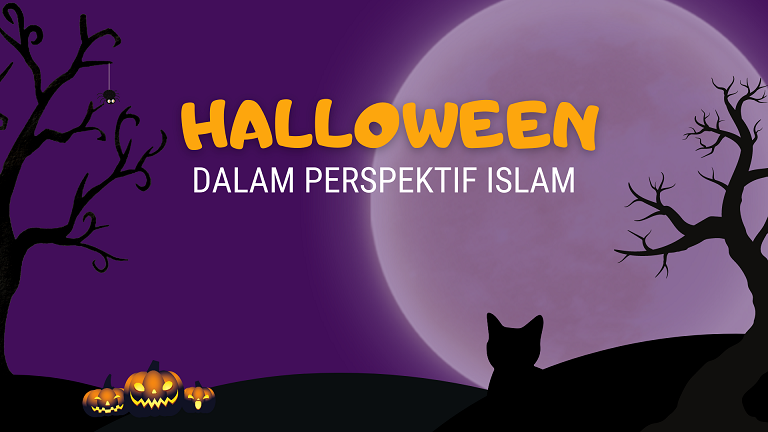Halloween in Islam: A Comprehensive Exploration
Related Articles: Halloween in Islam: A Comprehensive Exploration
- Halloween Horror Nights Wallpaper 2024: A Glimpse Into The Terrifying Realm
- Disney Halloween Sweaters: A Spooktacular Way To Celebrate The Season
- Halloween Horror Nights: Never Go Alone 2024
- Unveiling The Enchanting Disney Spirit Jersey Collection For Halloween 2024
- Halloween Day Out 2024: A Spooktacular Adventure For All Ages
Introduction
In this auspicious occasion, we are delighted to delve into the intriguing topic related to Halloween in Islam: A Comprehensive Exploration. Let’s weave interesting information and offer fresh perspectives to the readers.
Table of Content
Video about Halloween in Islam: A Comprehensive Exploration
Halloween in Islam: A Comprehensive Exploration

Introduction
Halloween, a widely celebrated holiday in many Western countries, has its origins in ancient Celtic traditions and has evolved over centuries. However, its celebration in the Muslim world has been a subject of debate and controversy. This article aims to provide a comprehensive exploration of Halloween in Islam, examining its historical roots, religious implications, and contemporary perspectives.
Historical Roots of Halloween
Halloween traces its origins to the ancient Celtic festival of Samhain, celebrated on October 31st. Celts believed that on this night, the boundary between the worlds of the living and the dead blurred, allowing spirits to cross over. They celebrated with bonfires, costumes, and divination rituals to ward off evil spirits and honor the deceased.
Halloween in Islamic Tradition
Islam, as a monotheistic religion, does not recognize the existence of spirits or the celebration of festivals associated with them. The Quran, the holy book of Islam, prohibits Muslims from participating in practices that promote superstition, idolatry, or the worship of other deities.
Religious Implications
For many Muslims, the celebration of Halloween conflicts with Islamic teachings. They argue that it promotes beliefs and practices that are incompatible with Islamic faith, such as:
- Polytheism: Halloween is associated with the belief in spirits and supernatural beings, which is considered polytheism in Islam.
- Superstition: The rituals and customs of Halloween, such as divination and wearing costumes to ward off evil spirits, are seen as superstitious practices.
- Shirk: Participating in Halloween celebrations may be viewed as a form of shirk, which is the act of associating partners with Allah.
Contemporary Perspectives
Despite the religious objections, Halloween has gained some popularity among certain segments of the Muslim population, particularly in Western countries. Some Muslims argue that it is possible to celebrate Halloween in a way that is consistent with Islamic values, by:
- Focusing on the cultural aspects: Celebrating Halloween as a cultural event, without adhering to its religious or superstitious beliefs.
- Modifying the costumes: Avoiding costumes that depict supernatural beings or promote inappropriate behavior.
- Avoiding divination and rituals: Refraining from practices that are associated with superstition or witchcraft.
Cultural and Social Impact
The celebration of Halloween in Muslim societies has had both positive and negative impacts:
- Cultural exchange: Halloween has introduced new cultural elements to Muslim communities, promoting cross-cultural understanding.
- Commercialization: Halloween has become a commercialized event, leading to increased spending and consumerism.
- Social division: The debate over Halloween has created divisions within Muslim communities, with some advocating for its celebration while others strongly oppose it.
Conclusion
Halloween in Islam is a complex and multifaceted issue. While its celebration conflicts with some Islamic teachings, it has also gained some acceptance as a cultural event. Ultimately, the decision of whether or not to celebrate Halloween is a personal one that should be made with careful consideration of religious beliefs and cultural norms.
Recommendations
For Muslims who wish to navigate the Halloween season in a way that is consistent with Islamic values, the following recommendations are offered:
- Educate oneself: Learn about the origins and religious implications of Halloween.
- Respect others: Be respectful of those who choose to celebrate Halloween, even if you do not agree with their beliefs.
- Make informed decisions: Carefully consider the potential benefits and drawbacks of celebrating Halloween before making a decision.
- Set boundaries: If you choose not to celebrate Halloween, politely decline invitations and explain your reasons.
- Promote positive alternatives: Encourage the celebration of alternative events that are more aligned with Islamic values, such as Mawlid or Eid.
By approaching Halloween with understanding, respect, and a strong sense of Islamic identity, Muslims can navigate this cultural event in a way that is both meaningful and consistent with their faith.







Closure
Thus, we hope this article has provided valuable insights into Halloween in Islam: A Comprehensive Exploration. We hope you find this article informative and beneficial. See you in our next article!
